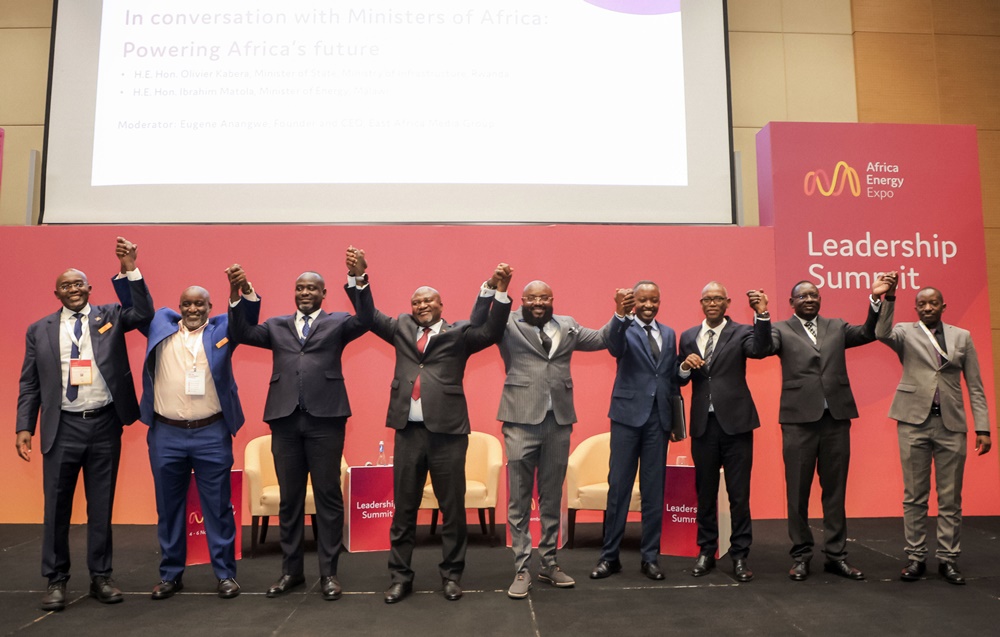News & Events Details

Nov
Rwanda and DR Congo Officials meet over Kivu Methane Gas
Officials from Rwanda and DR Congo have said it is time to end ‘mere talk’ and start concrete action on a joint exploitation of methane gas deposits in Lake Kivu, with an aim of producing energy for the people of both countries.
The agreement for joint exploitation of methane gas in Lake Kivu dates back to 1975 when the two countries committed to work together to generate energy from the lake, but 40 years later, there is no tangible impact.
While the lake presents the potential of generating over 700 megawatts of methane gas, according to studies, only 26 megawatts have been extracted through the Kivuwatt project on the Rwandan side.
On 12th August 2016, President Paul Kagame and his Congolese counterpart, Joseph Kabila, met in Rubavu, Rwanda, and declared their willingness to develop a joint project for the production of electricity from methane gas in Lake Kivu, among other initiatives and announced through a final communiqué from the meeting that both Governments would rapidly proceed with the implementation of the project
Following the meeting, a joint technical committee was set up to discuss how the commitment of government leaders should be implemented.
On Thursday, 10th November 2016, officials from the two countries met in the Congolese town of Goma where they discussed the way forward.
Hon. Dr. Vincent Biruta, the Minister for Natural Resources who led the Rwandan delegation to Goma, said Lake Kivu is endowed with a lot of shared resources that can be jointly exploited for the benefit of the people in both countries.
 Group photo after the ministerial meeting in Goma - DRC
Group photo after the ministerial meeting in Goma - DRC
"There are resources we need to exploit together for the common development of our countries, there are agreements signed long ago under which both countries committed to work together on joint projects but some have derailed while others are in progress. Rwanda has made a breakthrough in exploiting methane gas; we have also started exploration for oil in the area. The resources are trans-border so we can work faster and efficiently together,” said Biruta.
Jean Bosco Mugiraneza, the Chief Executive Officer of Rwanda Energy Group (REG) and Chairperson of joint technical committee - Rwanda, said there are enough energy resources in the lake to significantly make a difference for the people of both countries.
“Kivuwatt Methane Gas to Power Plant is generating electricity on the Rwandan side, and we are now looking at ways the second phase (Kivuwatt II project) can be pursued jointly,” said Mugiraneza, adding that research shows that up to 700 megawatts can be extracted from Lake Kivu for a period of at least 50 years.
Speaking during the meeting, Aimé Ngoi Mukena Lusa Desiré, the Congolese Minister of Hydrocarbons, also emphasized the need to work together.
“We have talked and talked about cooperation in exploiting the resources in the Kivu area long enough; it is time to implement,” Ngoi said.
“The will of our Heads of State must prevail. Today, we are ready to start from what is there, Rwanda has started and if they have advanced, we are ready to catch up as they can also catch up on what we started.”
He added “other than energy; the two countries should also work on other projects, mainly roads’’.
Effective exploration of methane gas in Lake Kivu is expected to boost electricity generation in both Rwanda and DR Congo and accelerate economic growth in both countries.
The electricity access countrywide in Rwanda stands today at 27 per cent while DR Congo stands at about 20 per cent, according to officials
 Group photo: Joint Technical Committee Rwanda and DR Congo in a meeting in Rubavu, Rwanda
Group photo: Joint Technical Committee Rwanda and DR Congo in a meeting in Rubavu, Rwanda
 Kivuwatt methane gas to power barge (26MW)
Kivuwatt methane gas to power barge (26MW)
Categories
Archives
- November 2024
- October 2024
- September 2024
- July 2024
- May 2024
- April 2024
- March 2024
- August 2023
- July 2023
- June 2023
- May 2023
- April 2023
- February 2023
- December 2022
- August 2022
- July 2022
- June 2022
- May 2022
- April 2022
- March 2022
- February 2022
- January 2022
- December 2021
- November 2021
- September 2021
- August 2021
- July 2021
- June 2021
- May 2021
- April 2021
- February 2021
- January 2021
- December 2020
- November 2020
- October 2020
- September 2020
- August 2020
- July 2020
- June 2020
- April 2020
- March 2020
- February 2020
- January 2020
- December 2019
- November 2019
- October 2019
- September 2019
- August 2019
- July 2019
- June 2019
- May 2019
- April 2019
- March 2019
- February 2019
- January 2019
- December 2018
- November 2018
- October 2018
- September 2018
- July 2018
- June 2018
- April 2018
- March 2018
- February 2018
- January 2018
- December 2017
- November 2017
- August 2017
- July 2017
- June 2017
- March 2017
- February 2017
- January 2017
- December 2016
- November 2016
- August 2016
- July 2016
- June 2016
- April 2016
- February 2016
- May 2015
- April 2015
- March 2015
- January 2015
- December 2014
- August 2014
- July 2014
Related News
Our Partners
Please fill in the form or Call us on our Toll free number 2727























